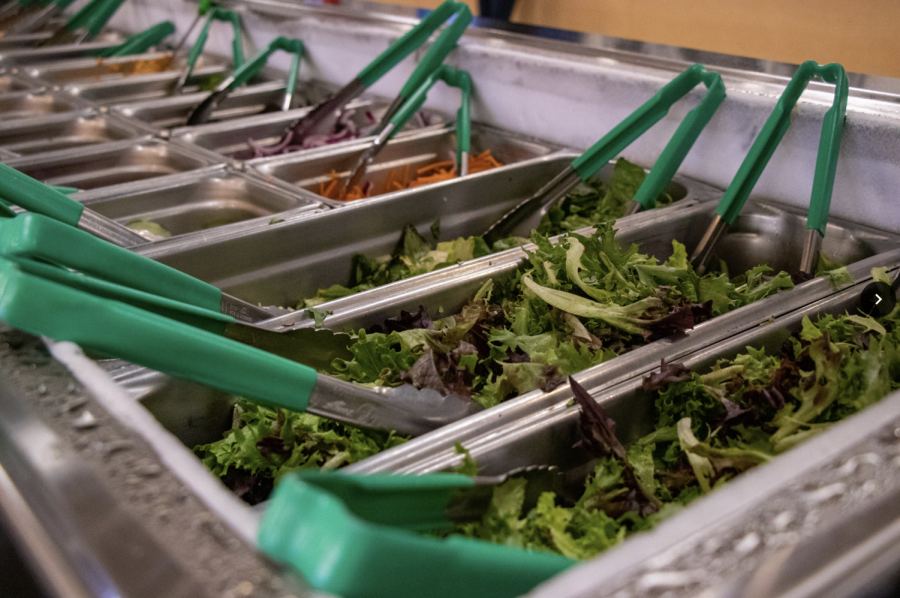Aramark Faces Criticism
NYU Cuts Ties with Aramark- What will Fordham Do?
ANDREW DRESSNER\THE OBSERVER
Aramark, one of the largest nationwide food-and-services providers, has received criticism in the past for its track record- particularly in correctional facilities.
October 30, 2019
Aramark, the dining services provider for Fordham University, was not invited to renew its more than 35 year contract with New York University (NYU) this year, reigniting debates about the catering company’s role on Fordham’s own campus. The decision followed an incident in which a racially insensitive menu featuring “watermelon water” was offered during Black History Month and months of student activists protesting Aramark’s connections to private prisons.
Aramark, which has contracts with more than 500 correctional facilities, has run into a number of issues with food safety in prisons in recent years. In July 2014, inmates at a Michigan prison found maggots while peeling potatoes. Another Michigan prison reported that 30 inmates had fallen ill after maggots were found in the dining hall.
In 2017, former Fordham College at Lincoln Center (FCLC) ’21 student Lily Brahms found a dead mouse in one of the salad containers prepared by Aramark workers in the McKeon dining hall. Brahms was trying to make a salad when she said something in the spinach caught her eye; using the tongs to dig through, she realized the worm-like creature was actually a dead mouse and quickly alerted the staff.
“I would’ve taken a picture, but I was so nauseous I had to run up to my room. I didn’t eat anything from the dining hall for a while after that. My mom made a bunch of food for me to bring back to school in tupperware containers,” said Brahms.
Since then, mice have reportedly been spotted scurrying across the floor in Fordham’s kitchens. Deming Yaun, Fordham’s Dining Services contract liaison, noted that Aramark changed ingredient providers following the incident and Aramark employees now unload packaged food onto a tray and search the food before sorting it into containers.
The Fordham community continues to express dissatisfaction with Aramark’s services. A current junior at FCLC who asked to remain anonymous commented on the lack of halal options in the dining hall, which limits the kinds of foods Muslim students can choose from.
“I wouldn’t be able to eat anything with meat because the meat is not cooked properly. They use the same grill and utensils for everything, which leads to cross-contamination,” the student said. “You also have no idea where any of the food is coming from or how it was prepared.”
Starting last spring, Yaun began meeting with concerned students and enabling the University to introduce pre-packaged halal food in the Lincoln Center dining hall. However, students contend that the options are costly and that the lack of designated space to cook halal food remains an issue.
“For the last seven years, we’ve introduced new or renovated spaces. We didn’t this year and we may not for the next few years, because funding is going into renovation for the McGinley Center at Rose Hill,” said Yaun. “What we have there is a clear footprint of where dining will be able to put retail and all-you-can-eat offerings for students, and putting a halal location there has great appeal for us.”
Even so, the renovations will only be completed two years from now; Lincoln Center will have to wait even longer for dining changes as there are currently no plans in place. When asked about kosher options for Jewish students and staff, Yaun expressed enthusiasm but said there hasn’t been much of a demand from the Fordham community.
Student complaints about Aramark’s presence on campus frequently resurface from year to year. However, The Ram reported that Yaun claims there are no other alternatives to Aramark that can provide the same resources and experience to Fordham University.











